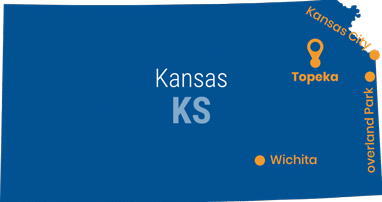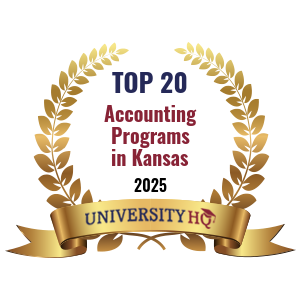What is Accounting?
An accountant is a business professional who works with the lifeblood of every enterprise, its finances. While many of us only think of accountants when tax time rolls around, accountants can work in many other areas of business and government. Yet, they all essentially work with ledgers that record every expense and revenue generating transaction. Accountants are thus very detail oriented, and many have migrated to the IT world where they are called to audit network traffic, database activity, and more. Accountants also work under a wide range of licenses and certifications which steer their careers in meaningful ways.
In fact, one of the most respected professional license is that of certified public accountant. CPAs are licensed by their state to sign tax filing documents. To earn this status, CPAs have passed the most difficult professional exam available. Other accountants can earn certificates to work in other areas of business such as risk management, forensic accounting, management accounting, and non-profit accounting.

Best Schools for Accounting in Kansas
Kansas State University
Score: 82.8
- Undergraduate Tuition
- In-State: $10,942
- Out-of-State:$27,816
- Net Price: $18,745
- Acceptance Rate: 79%
- Retention Rate: 87%
- Graduation Rate: 70%
- Total Enrollment: 19,745
- Undergrad Students: 15,113
- Graduate Students: 4,632
- Grads Salary: $74,000
- Student-to-faculty: 18:1
University of Kansas
Score: 82.47
- Undergraduate Tuition
- In-State: $11,700
- Out-of-State:$29,412
- Net Price: $18,322
- Acceptance Rate: 88%
- Retention Rate: 85%
- Graduation Rate: 69%
- Total Enrollment: 28,406
- Undergrad Students: 20,696
- Graduate Students: 7,710
- Grads Salary: $75,000
- Student-to-faculty: 17:1
Friends University
Score: 79.76
- Undergraduate Tuition
- In-State: $32,748
- Out-of-State:$32,748
- Net Price: $22,579
- Acceptance Rate: 56%
- Retention Rate: 70%
- Graduation Rate: 61%
- Total Enrollment: 1,927
- Undergrad Students: 1,460
- Graduate Students: 467
- Grads Salary: $76,000
- Student-to-faculty: 14:1
Baker University
Score: 77.21
- Undergraduate Tuition
- In-State: $33,900
- Out-of-State:$33,900
- Net Price: $23,410
- Acceptance Rate: 92%
- Retention Rate: 74%
- Graduation Rate: 59%
- Total Enrollment: 1,945
- Undergrad Students: 1,457
- Graduate Students: 488
- Grads Salary: $78,000
- Student-to-faculty: 12:1
Newman University
Score: 76.97
- Undergraduate Tuition
- In-State: $35,500
- Out-of-State:$35,500
- Net Price: $19,315
- Acceptance Rate: 48%
- Retention Rate: 71%
- Graduation Rate: 54%
- Total Enrollment: 2,787
- Undergrad Students: 2,398
- Graduate Students: 389
- Grads Salary: $69,000
- Student-to-faculty: 13:1
Washburn University
Score: 74.96
- Undergraduate Tuition
- In-State: $9,578
- Out-of-State:$20,582
- Net Price: $12,894
- Acceptance Rate: 100%
- Retention Rate: 69%
- Graduation Rate: 53%
- Total Enrollment: 5,663
- Undergrad Students: 4,930
- Graduate Students: 733
- Grads Salary: $68,000
- Student-to-faculty: 13:1
Wichita State University
Score: 74.53
- Undergraduate Tuition
- In-State: $9,322
- Out-of-State:$19,240
- Net Price: $14,184
- Acceptance Rate: 95%
- Retention Rate: 68%
- Graduation Rate: 51%
- Total Enrollment: 16,741
- Undergrad Students: 12,856
- Graduate Students: 3,885
- Grads Salary: $74,000
- Student-to-faculty: 20:1
Pittsburg State University
Score: 74.15
- Undergraduate Tuition
- In-State: $8,008
- Out-of-State:$19,692
- Net Price: $19,357
- Acceptance Rate: 88%
- Retention Rate: 78%
- Graduation Rate: 58%
- Total Enrollment: 5,722
- Undergrad Students: 4,426
- Graduate Students: 1,296
- Grads Salary: $68,000
- Student-to-faculty: 15:1
Fort Hays State University
Score: 72.43
- Undergraduate Tuition
- In-State: $5,633
- Out-of-State:$16,811
- Net Price: $13,774
- Acceptance Rate: 92%
- Retention Rate: 77%
- Graduation Rate: 48%
- Total Enrollment: 12,843
- Undergrad Students: 10,206
- Graduate Students: 2,637
- Grads Salary: $65,000
- Student-to-faculty: 14:1
Benedictine College
Score: 72.24
- Undergraduate Tuition
- In-State: $34,800
- Out-of-State:$34,800
- Net Price: $28,451
- Acceptance Rate: 76%
- Retention Rate: 80%
- Graduation Rate: 65%
- Total Enrollment: 2,465
- Undergrad Students: 2,391
- Graduate Students: 74
- Grads Salary: $68,000
- Student-to-faculty: 15:1
Emporia State University
Score: 71.81
- Undergraduate Tuition
- In-State: $7,356
- Out-of-State:$15,669
- Net Price: $15,441
- Acceptance Rate: 98%
- Retention Rate: 67%
- Graduation Rate: 54%
- Total Enrollment: 4,658
- Undergrad Students: 2,412
- Graduate Students: 2,246
- Grads Salary: $67,000
- Student-to-faculty: 17:1
Rasmussen University-Kansas
Score: 70.58
- Undergraduate Tuition
- In-State: $15,340
- Out-of-State:$15,340
- Net Price: $17,320
- Acceptance Rate: 100%
- Retention Rate: 50%
- Graduation Rate: 50%
- Total Enrollment: 333
- Undergrad Students: 333
- Graduate Students: 22
- Grads Salary: $70,000
- Student-to-faculty: 11:1
University of Saint Mary
Score: 64.61
- Undergraduate Tuition
- In-State: $33,890
- Out-of-State:$33,890
- Net Price: $23,611
- Acceptance Rate: 90%
- Retention Rate: 64%
- Graduation Rate: 44%
- Total Enrollment: 1,414
- Undergrad Students: 1,015
- Graduate Students: 399
- Grads Salary: $66,000
- Student-to-faculty: 12:1
Kansas Wesleyan University
Score: 63.82
- Undergraduate Tuition
- In-State: $33,470
- Out-of-State:$33,470
- Net Price: $23,419
- Acceptance Rate: 85%
- Retention Rate: 60%
- Graduation Rate: 38%
- Total Enrollment: 951
- Undergrad Students: 899
- Graduate Students: 52
- Grads Salary: $69,000
- Student-to-faculty: 13:1
Central Christian College of Kansas
Score: 63.68
- Undergraduate Tuition
- In-State: $21,000
- Out-of-State:$21,000
- Net Price: $12,217
- Acceptance Rate: 100%
- Retention Rate: 59%
- Graduation Rate: 23%
- Total Enrollment: 455
- Undergrad Students: 437
- Graduate Students: 18
- Grads Salary: $67,000
- Student-to-faculty: 11:1
Midamerica Nazarene University
Score: 62.7
- Undergraduate Tuition
- In-State: $36,120
- Out-of-State:$36,120
- Net Price: $29,992
- Acceptance Rate: 73%
- Retention Rate: 61%
- Graduation Rate: 46%
- Total Enrollment: 1,539
- Undergrad Students: 1,185
- Graduate Students: 354
- Grads Salary: $65,000
- Student-to-faculty: 10:1
Hutchinson Community College
Score: 61.69
- Undergraduate Tuition
- In-State: $3,720
- Out-of-State:$4,650
- Net Price: $6,456
- Acceptance Rate: 100%
- Retention Rate: 69%
- Graduation Rate: 45%
- Total Enrollment: 4,983
- Undergrad Students: 4,983
- Graduate Students: N/A
- Grads Salary: $42,300
- Student-to-faculty: 17:1
Ottawa University-Ottawa
Score: 57.7
- Undergraduate Tuition
- In-State: $35,300
- Out-of-State:$35,300
- Net Price: $28,126
- Acceptance Rate: 80%
- Retention Rate: 58%
- Graduation Rate: 29%
- Total Enrollment: 1,055
- Undergrad Students: 936
- Graduate Students: 119
- Grads Salary: $70,000
- Student-to-faculty: 15:1
Barton Community College
Score: 53.45
- Undergraduate Tuition
- In-State: $3,904
- Out-of-State:$4,832
- Net Price: $11,329
- Acceptance Rate: 100%
- Retention Rate: 51%
- Graduation Rate: 43%
- Total Enrollment: 4,393
- Undergrad Students: 4,393
- Graduate Students: N/A
- Grads Salary: $38,350
- Student-to-faculty: 18:1
Kansas City Kansas Community College
Score: 51.38
- Undergraduate Tuition
- In-State: $3,420
- Out-of-State:$6,720
- Net Price: $13,563
- Acceptance Rate: 100%
- Retention Rate: 50%
- Graduation Rate: 38%
- Total Enrollment: 4,803
- Undergrad Students: 4,803
- Graduate Students: N/A
- Grads Salary: $38,200
- Student-to-faculty: 14:1
Online Accounting Education in Kansas
Kansas is a state for business. Those that drive its highways and byways may be impressed by the endless rows of corn or sunflowers, but there is far more afoot. After all, all of those agricultural products must be processed by way of the state's top industrial sector – manufacturing. Then, those manufacturing plants need to be audited for efficiency and financial worthiness by a team of accountants.
In fact, there's hardly any business in existence that doesn't rely on accountancy for its lifeblood. On top of this, Kansas boasts professional and business services as its #3 industry and finance and insurance comes in at #7 among the state's top 10 economic sectors. Thus, there is always a demand for accounting professionals in Kansas. Even its #10 industry, construction, needs budget analysts and other accounting professionals to ensure that projects are viable and profitable and have a reasonable budget.
To ensure that Kansas maintains positive economic growth, it needs a steady supply of highly qualified accounting professionals. From bookkeepers to CPAs, the state needs its businesses to maintain healthy accounting practices. Thus, Kansas' colleges and universities all work hard to provide future bookkeepers and accountants with the very best education possible.
Nearly every community has some access to a community college where students can study business and accounting from highly qualified instructors. These community college classes typically have small class sizes, and the schools frequently offer courses and even whole degrees online. Kansas' four-year colleges and universities also offer full bachelor's accounting degrees that are designed to prepare students for their CPA examination. There are also programs for a master of accountancy or a master of business administration.
Kansas' innovative post-secondary institutions also offer their accounting students the opportunity to enhance their degrees with other subject areas. For instance, many accounting students broaden their education with courses in computer science, information technology, or business administration. These special concentration areas help Kansas' accounting professionals become the cutting-edge businesspeople that the world needs to address the new challenges posed by technology and an increasingly global economy.
Online Associate (AS or AA)

One terrific way to start a career in business and accounting is to earn an associate accounting degree. A two-year degree provides students with the fundamental skills they need to start working as a bookkeeper. Their two-year associate degree can also help them earn certain certifications which distinguish them in the marketplace.
It can be very beneficial to start a career with an associate accounting degree. For one thing, associate degrees include the core college curriculum required for a bachelor's degree. Students who decide to complete a bachelor's accounting degree later are thus primed to dive into their upper-level accounting courses. Those who take a few years to work in business or bookkeeping may even be able to pay off a good portion of their student loans. After all, community college credits tend to be more affordable than those from a four-year institution.
Online Bachelors (BS, BAcc or B.Acy)

A four-year undergraduate accounting degree is a very strong foundation for any accounting student. Over the course of a full undergraduate accounting degree, students are able to gain exposure to many special topics in accounting. Undergraduate students can also round out their accounting education with courses from other fields. Some accounting students earn a minor concentration in areas such as information technology, computer science, and business management, to name a few options. These minor fields may even help steer their career after graduation.
A bachelor's accounting degree is also immensely helpful for those who desire a CPA license. Most state boards of accountancy require a bachelor's accounting degree for those who wish to sit for the AICPA examination. CPA candidates should investigate their state's requirements. Kansas' CPA requirements include 150 credit hours, including of a bachelor's degree. Thus, students typically need to complete their undergraduate degree and then add around 30 more credits to their transcripts. This may be a terrific opportunity to start an MS in Accounting or even an MBA.
Online Masters (MS, MAcc or M.Acy)

Since Kansas' board of accountancy requires that candidates for the CPA examination have a minimum of 150 credit hours, it's a wise idea to enter a graduate degree program for accounting or an MBA. Either degree will provide the credits necessary to sit for the CPA exam. However, before doing so, it's important for students to decide where they want to take their careers. Those who are interested more in applying their accounting skills in a general way may want to complete an MBA with a concentration in accounting and/or finance. Students who are dedicated to accounting should apply to MS programs for accountancy. Yet a third option is a dual MBA where students can concentrate on some other topic in their second MBA year while finishing an MS in Accountancy in the same three-year period.
Not only will these graduate courses help students qualify to sit for the CPA exam in Kansas, but they will also find that their job prospects brighten when they graduate. With an MBA, students will broaden their knowledge of business in the first year and then concentrate on a special topic, such as finance or accounting, in their second. An MS, on the other hand, offers students the opportunity to dive deep into their chosen field.
Online Doctorate (PhD or D.Acy.)
While the business community doesn't emphasize the need for a PhD, the online degree can always be of use. In fact, a student who doggedly pursues a doctorate after completing their undergraduate accounting degree might find that they have an edge. After all, since master’s accounting degrees are increasingly common, one way to stand out from the pack is by completing a doctorate in accounting. It's also true that the business community increasingly values specialization among its workers and a PhD allows students to become as specialized as they possibly can be.
Over the course of the PhD work, students will be able to explore special topics in accountancy with microscopic accuracy and detail. Given the rise of technology, those who aim their careers towards auditing networks and databases may especially benefit from a doctorate curriculum. Others might choose more traditional topics to study, such as taxation and regulation. Once their dissertation is accepted and they graduate, all doctorate accounting students will have the chance to thrive in the business, governmental, non-profit, or academic realm.
Get our accounting resources and scholarships guide Check out our financial aid guideCPA Exam Requirements in Kansas
Kansas’ educational requirements for pursuing a CPA license include obtaining a BS degree or higher from an institution of higher learning approved by the Kansas State Board of Accounting (KSBOA). You may want to start by obtaining an associate in accounting, to give you more time to gain work experience with a firm and help you answer any questions you have about the profession, but students will need to continue to study and gain a bachelor's degree to have enough semester hours to become a CPA. If you plan to pursue an undergraduate degree and later practice in Kansas, make sure the college or university you attend is approved by the Kansas Stat Boards of Accountancy.
Find Online Accounting Schools
A student that wishes to become a certified public accountant CPA must complete a minimum of 150 credit hours with a focus on accounting.
At least 42 of those credit hours must include general education courses and some in business, with content to help you learn skills based on CPA experience requirements, which include:
- Microeconomics
- Macroeconomics
- Upper level economics course
- Two courses relating to business law and legal studies
- Algebra or higher-level mathematics
- Finance
- Marketing
- Management and business administration
- Statistics and probability theory
- Computer systems, technology, applications, and security
- Production or operations research
In addition, students must complete a minimum of 30 credit hours in accounting theory and practice, including:
- Intermediate or graduate level accounting
- Managerial accounting – not an introductory course
- United State income tax course
- Auditing
- Accounting information systems – not an introductory course
CPA candidates must also complete a minimum of 11 credit hours in communication courses, which include English composition, business communications, and speech. Other liberal arts courses such as poetry, theater, literature and foreign languages do not count toward exam requirements.
You'll find that the necessary coursework is quite specific, and while the KSBOA may waive up to six hours total consisting of three hours of course requirements in each of the three categories, the Board make it clear that a waiver “is an exception, not the rule,” and anyone seeking a waiver must present a very good reason or accept the terms of educational requirement and other info as written.
Taking the Kansas CPA Exam
Once you successfully complete the education requirements, you may sit for the Uniform CPA Exam. The only way of becoming a CPA is to take the CPA exam and pass the state boards. The National Association of State Boards of Accountancy (NASBA) provide an online application for CPA Exam Services. After completing the application, you must read and acknowledge the Kansas Boards of Accountancy’s cheating policy form, and send it along with a 2” x 2” recent photograph of yourself to:
CPA Examination Services – Kansas Coordinator
P.O. Box 198469
Nashville, TN 37219-8469
Have your schools send their official transcripts to this address. Currently, the registration fee for the exam is $145, and the exam fee is either $185.10 or $207.15, depending on which components you are taking. You may pay online with a credit card, or pay via credit card, check, or money order if sending a paper application. Checks and money orders are made payable to CPA Examination Services.
Your application requires approval. You can expect this process to take between four to six weeks. Once approved, you will receive the Notice to Schedule (NTS) by the method you previously indicated, whether email, fax, or regular mail. If you don’t receive the NTS within four weeks of your application approval, contact CPA Examination Services. You can schedule your exam online through the Kansas contractor, Prometric, to be taken at any available testing site in the state, which are available in Overland Park, Wichita, and Topeka, KS, and others.
-
The four sections of the exam
There are four components of the Uniform CPA Exam: Financial Accounting and Reporting, Business Environment and Concepts, Regulation, and Auditing and Attestation. While you can take the exam sections at different times, you must gain a passing score on all of them within an 18-month period. Each section sits for four hours, for a total of 16 test hours. It is permissible, though perhaps impossible, to take all four sections at one sitting.
-
Kansas examination windows
In Kansas, the Uniform CPA Exam is offered every quarter, a period known as a window. The exam is offered at least twice during every window, but you cannot sit for the same section of the exam more than once during each window. You are permitted to sit for the various exam section four times yearly.
Under some circumstances, you may be free to sit for the exam up to 60 days prior to completion of all education requirements.
-
Exam location
The Kansas CPA examination is offered in three cities: Overland Park, Wichita, and Topeka. You can also take the examination in other US jurisdictions and identify as Kansas CPA candidates. If you take the exam in Guam, extra fees are involved.
-
Exam results
The results of the examination are sent to you directly by NASBA. Using your date of birth and section identification number, you can access your results online. Scores are also sent to the KSBOA, which will also notify you.
-
A two-tier state
Kansas is a two-tier state when it comes to practicing as a CPA. The first tier involves around passing the exam. Once you have done that, you receive a certificate allowing you to use “CPA” in your credentialing, but that certificate is not a practice license. There is a $25 fee for the certificate. An oath is taken by all certificate holders, and you must sign it. Before you can obtain a license, you must acquire experience.
Continuing Professional Education Requirements
Permit renewal is required every two years, with expiration date of July 1. Those with odd-numbered permits must renew theirs in odd-numbered years, and the same holds true for even-numbered permits in even-numbered years. When a CPA receives his or her initial permit, they are given a number of continuing education hours they must complete before their first renewal.
Renewal requires 80 hours of Continued Professional Education (CPE) within those two years, which includes two hours of CPA ethics. Those ethics hours must consist of courses on professional standards; SEC oversight; competence; licenses and renewals; independence; confidential client information; acts discreditable; advertising and solicitation; integrity and objectivity; commissions; contingent fees; conflicts of interest; malpractice; record retention; full disclosure; professional conduct; risk management and corporate ethics.
Search Programs Offering Accounting Majors
If you earn a maximum of 20 CPE hours beyond the 80 hours required for the renewal, you may carry them over toward your next CPE hours requirement. The additional hours do not count toward fulfillment of the ethics component.
-
Special Kansas CPA considerations
If you are a licensed CPA in another state, and those requirements are basically equivalent to those of Kansas, but you don’t have a primary place of business in Kansas, you may become a permit holder. If you want to practice public accounting in Kansas, but your license is from another state, you must pay a $250 licensing fee and ask your state’s licensing board to give your information via the Authorization for Exchange of Licensure Information.
Those with an equivalent degree in accounting from Mexico, Canada, Ireland, Australia, New Zealand or Hong Kong may take the International Qualification Examination (IQEX) and then apply for a Kansas certificate and permit. For those with accounting degrees from any other countries, fulfillment of the Kansas education, examination and experience qualifications is necessary.
Become an Accountant in Kansas
Since the accounting field is broad and diverse, the road to landing an accounting career can be as short or as long as a student likes. It's possible, after all, to begin a career as a bookkeeper with only a few courses. Bookkeepers who complete an associate accounting degree can go on and earn a variety of certificates that qualify them for certain job types. For instance, a two-year community college accounting degree can qualify a student to become an Enrolled Agent and represent taxpayers.
When considering accounting as a career choice, it's vital to assess one's natural desires and talents. This can involve assessing one's childhood, where the seeds of accountancy may have taken root. These days, a growing number of high schools are offering curriculum tracks that focus on STEM subjects. For those who are interested in accounting, focusing on mathematics and computer science can be enormously beneficial. There may even be high schools that offer entry-level business courses that cover accounting, management, and other general business topics. These courses will look terrific on a transcript when it comes time for college.
When students seek out an accounting program for their college years, they need to focus on each program's faculty, curriculum, and accreditation. In fact, accreditation may be one of the most important features to consider. Students should look for an accounting program that holds program specific credentials from either the AACSB, ACBSP, or IACBE. Even community colleges can hold these nationally recognized accreditations.
Those who choose a full bachelor's accounting degree will have the option of completing an additional 30 credit hours to satisfy the Kansas board's requirements to sit for the CPA examination. Once students pass all four parts of the CPA exam, they can earn a Kansas CPA license and work for an accounting firm. Even those who don't pass all four parts find that passing even one quarter can add to their resume and result in very good things indeed.
Potential Careers for Accounting Graduates
Once you graduate with a degree in accounting or finance, there are many career options/specialties available to you. Below is a brief list of careers that you can explore more information about them and yearly salaries you can earn.
- Senior Accountant
- Staff Accountant
- Financial Controller
- Comptroller Accountant
- Business Analyst
- Business Consultant
- Capital Accountant
- Financial Analyst
- Certified Professional Accountant (CPA)
- Accounts Payable / Accounts Receivable Specialist
- Accountant
- Budget Analyst
- Managerial Accountant
- IRS Agent
- Bookkeeper
- Tax Accountant
Search All Programs





















